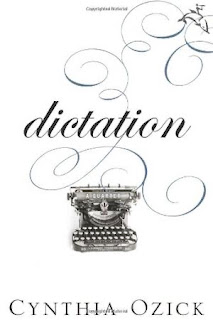“The Magician“ by Colm Tóibín:
Soon into the very first pages of this book I knew I had successfully hit on another, so very rare, book that right from the start to its end will be a joy to read. Not such a big surprise, since I have been admiring Colm Tóibín for a long time and had never once been disappointed.
This is an enormously ambitious book and it is the second time Tóibín has used fiction to imagine his way into the mind of a great novelist of the past. In 2004 he ventured inside the mind of Henry James in The Master. Now it is Thomas Mann, writer, essayist and Nobel laureate, in The Magician. Both men had elder brothers who were also respected authors (William James, Heinrich Mann) and with whom they secretly competed in complex relationships. Both spent long periods of their lives away from their homelands, voluntarily or involuntarily. Both expressed and wrote about homosexual desires in their work but did not acknowledge this trait in themselves, at least not publicly. Both men were cosmopolitans with social connections all across Europe and broad intellectual interests.
Tóibín’s novel is mainly a portrait of the artist as a person and family man, there is some but not too much about Mann’s development as a writer or about his status in the literary world, which makes the book even more endearing to me. Events, ideas, and relationships are highlighted, rather than long excursions and reflections into the development and history of Mann’s writing process. In The Magician Tóibín beautifully evokes, resurrects even, the person behind the famous name, shows him to be human, lets us see his struggles, trials and tribulations, his anxieties and demons. He lets us understand how out of the interchanging dynamics of art, desire, decline and decay, great art can arise.
Young Thomas Mann hides his artistic aspirations from his father and his homosexual desires from everyone. At the age of only 25 he published, with instantaneous enormous success the Buddenbrooks, a semi-autobiographical novel. He marries the daughter of one of the richest, most cultured Jewish families in Munich, Katia Pringsheim, a complex and extraordinary person, has six children with her, although his infatuation really lies more with her twin brother, Klaus Pringsheim, a talented musician and composer. Tóibín’s depiction of Katia as a strong-willed woman who defies conventionality shows how instrumental in the developing of Mann’s voice and perfecting his art she was. She was a loving and understanding supporter of her husband’s and children’s diverse sexualities.
Many a time there are young men at whom the Thomas Mann of Tóibín looks as longingly as Thomas Mann’s Aschenbach looks at Tadzio in Death in Venice. He never touches them but turns desire into art. He becomes the most successful novelist of his time, winner of the Nobel Prize in literature. Mann opens windows into which we can look and see the lives of others unfold. His ability to detach himself from social and class categories and imagine and inhabit the lives of others is that of a magician.
And so is Tóibín. He follows a life which spans almost half a century. And what difficult, tormented, demanding, tragic times those were (World War I, the rise of Hitler, World War II, and the Cold War). Mann has to flee Germany, goes to Switzerland, France and then, his last stop, to America, living first in Princeton and then in Los Angeles. 1952 he moved back to Switzerland where he died in 1955. This is as much a story of changing times as a man changing with and against his times.
Along the way we meet cameos of Berthold Brecht, W. H. Auden, Gustav Mahler, Gustaf Gründgens and other contemporaries.
Queerness ran in the family. His sons Klaus and Golo and his daughter Erika were queer. Erika and Klaus were active in the anti-Nazi-movement. Both, too were writers of plays, stories and novels and acted on stage, both sometimes shared lovers. Erika was married to Gustaf Gründgens and later married the poet W. H. Auden, also gay, quite pragmatical for British passport access.
Suicide was another family theme. Both of Thomas Mann’s sisters and his sons Klaus and Michael committed suicide.
I liked The Master, Tóibín’s excursion into the life and mind of Henry James very much and thought it a great achievement. Here in The Magician Tóibín has outperformed himself, again. His prose is, as always strong, warm, vibrant and beautiful, perfect and worthy for such a grand writer as Mann. Tóibín is a true magician himself.
#robertfaeth, #painterinBerlin, #painting, #art, #bookblog, #bookreviews, #literaturelover, #poem, #poetry











